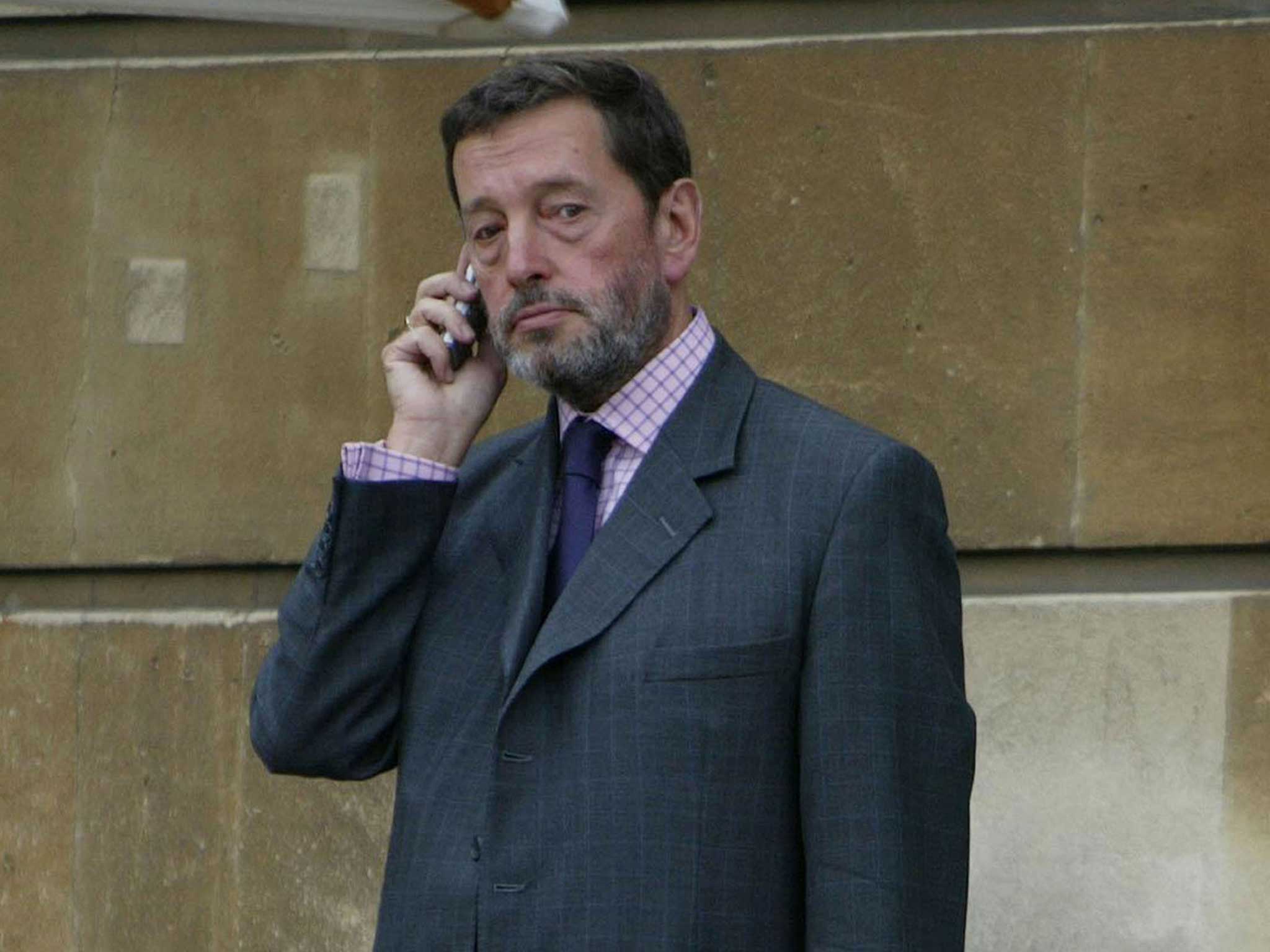Phone-hacking trial: David Blunkett believed someone 'very, very close' was intent on destroying his private life, court hears
The extent of the anger and frustration felt by the former home secretary is revealed in a series of voicemail recordings

The former home secretary David Blunkett was bemused about the “phenomenal amount” of information the media were getting hold of linked to his personal life and friends and believed someone “very, very close” was intent on destroying his private life, the jury at the Old Bailey hacking trial has heard.
The extent of the anger and frustration felt by Mr Blunkett was revealed to the court in a series of voicemail recordings left by him on the mobile telephone of a female estate agent he had met at Annabel’s nightclub in Mayfair in the autumn of 2005.
The tape recordings were found by police investigating phone hacking at the home of the private investigator, Glenn Mulcaire, who worked for the now-shuttered News of the World. At the time Mr Blunkett was a high-profile Cabinet minister in Tony Blair’s government.
The personal messages left by Mr Blunkett for the woman, Sally Anderson, were played to the court.
Along with serial apologies to Ms Anderson for allowing her to become a focus for journalists, Mr Blunkett is heard to say she must “rue the day” she met him. The former home secretary then attacks the media intrusion as the work of “real b*****ds” who had “done it for the money.” He sums up the position he and Ms Anderson were now in as “The world stinks.”
The attacks in the recordings continue with Mr Blunkett saying “whoever [has leaked the information] I hope they rot in hell.” The media are also described as “hyenas” with Mr Blunkett promising he’ll try and shed some light on what is happening “and they’ll run back to the jungle”.
The Mayfair nightclub meeting was just after Mr Blunkett had become Mr Blair’s work and pensions secretary.
Leaked details of the Anderson friendship led to media being camped outside her house and contacting her friends and family.
Mr Blunkett, on the tapes, is heard saying he could not quite fathom how photographers appeared to have “chapter and verse” about his and Ms Anderson’s movements. Those responsible for putting Ms Anderson “under siege” and who “set her up” are described on the recording as “vile”.
The jury have been told by the prosecution that Ms Anderson’s mobile phone was illegally hacked by NOTW.
The court was told of contact between the NOTW newsdesk and Mulcaire. Prior to the start of the trial, now into its third week, the jury were informed that Mulcaire, jailed for hacking in 2007, had pleaded guilty to further hacking-related charges.
As part of the Anderson timeline explanation to the jury, Andrew Edis QC, the lead prosecution counsel, said that during July and August 2005, in the run up to the Labour Party’s annual conference that year, Ms Anderson had engaged the services of the publicist Max Clifford.
Although during a trip to the United States with her future husband, made during the peak of the Blunkett media firestorm, Ms Anderson had been offered £150,000 by the NOTW for her story, she eventually decided sell to a rival Mirror title.
In her formal statement Ms Anderson recalled that during one of the Clifford meetings, Mr Blunkett had called her. She confirmed that she had given Mr Clifford permission to record the telephone conversation, and that the voicemails were handed over to the Mirror title.
The call’s details were published in a Sunday People article in October 2005.
David Blunkett brought a civil action against both the paper and Ms Anderson. A public apology was issued by Ms Anderson in March 2006.
In another statement read to the court Mr Blunkett said that although rumours suggested he was having an affair with the estate agent, this was not true.
Rebekah Brooks, the former News International chief executive, and the former NOTW editor Andy Coulson, who later ran David Cameron’s Downing Street communications office, are among eight defendants who face an array of hacking, bribery and conspiracy to pervert the course of justice charges.
All eight have denied all the charges against them.
The case continues.
Milly Dowler lawyer leaving UK for Los Angeles
Mark Lewis, the lawyer who played a pivotal role in exposing phone hacking inside News International, and who ended up representing the family of murdered schoolgirl, Milly Dowler in a massive £3m settlement personally supervised by Rupert Murdoch, is leaving Britain for Los Angeles.
"I've been in London for three years so it's time to move on," Mr Lewis told The Independent. Although he is heading west to California, he insisted he will still be pursuing hacking-related claims on both sides of the Atlantic.
Last year he married the journalist Caroline Feraday. “She is heading to LA – and I am following. Fortunately there are one or two things that I've been asked to pursue in the States,” he said.
Originally based in Manchester when he first came across evidence of hacking inside the News of the World, he said he now expected a “lot of long distance commuting” while he pursues his clients’ claims against both News UK and the Mirror Group titles.
Subscribe to Independent Premium to bookmark this article
Want to bookmark your favourite articles and stories to read or reference later? Start your Independent Premium subscription today.
